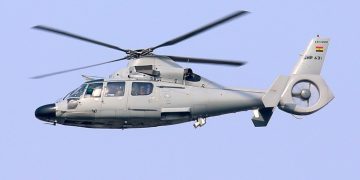Is Nigeria due for IMF bailout?
There are growing calls for Nigeria to tap the International Monetary Fund (IMF) in a last ditch effort to ease the foreign exchange crisis that has crippled Africa’s most populous nation.
Nigeria finds itself in a precarious situation where despite the bold market reforms by the Central Bank of Nigeria (CBN) to attract dollars – whether it is through the more transparent pricing of the dollar in the official market or a jumbo hike in interest rates, the dollars are not flowing sufficiently enough to lead to significant appreciation of the naira.
Analysts say the dollar inflows Nigeria has got since it started undertaking the far-reaching reforms have been like a drop of water in an ocean, highlighting the need for bigger inflows.
One option that stares Nigeria in the face as a source of sizable FX is an IMF facility.
Nigeria will be able to access over $20 billion from the IMF after the Fund last year raised the amount of cash that countries can borrow. But that window may only be open till the end of the year.
The executive board of the IMF temporarily raised the cash limits available under the Poverty Reduction and Growth Trust to 200 percent of quota and the normal cumulative access limit to 600 percent of quota until end-2024.
The Fund said at the time that the changes were intended to better support the Fund’s low-income members in a particularly challenging and uncertain global economic environment.
“I think we should go to the IMF to borrow $30 billion and institute a comprehensive reform program,” a senior banker familiar with the matter told BusinessDay. “All this drop feeding of incremental reforms isn’t it.”
The banker stressed that in the meantime, the government must intensify efforts in taming inflation, cut excesses in its expenditure, improve the ease of doing business, strengthen its fight against insecurity and map out a long term development plan.
Echoing this sentiment, Kingsley Moghalu, former deputy governor of the CBN, also proposed a $20-30 billion IMF stabilisation facility to solve the lingering FX crisis.
“To get out of Nigeria’s foreign exchange crisis, the FGN must very carefully consider whether it should take a formal stabilization package of $20-30 billion from the International Monetary Fund,” he said.
Moghalu said a substantive IMF facility would markedly increase FX liquidity and Nigeria’s external reserves more transparently.
However, he noted that IMF programmes do not solve the longer-term problems of borrowing countries, although they are helpful in the short to medium term – if and when the program is implemented in full.
The IMF is very unpopular in Nigeria.
Nigerians’ hatred for the IMF stems from back in the 1980s, when as a condition of emergency lending, the IMF demanded a series of cookie-cutter free-market “reforms” known collectively as the Washington Consensus.
Its structural adjustment programmes, or SAPs in the dreaded jargon, imposed deep cuts on public services and insisted on privatisation as well as trade and financial liberalisation. Many blamed such policies for destroying already threadbare state provision of schools and hospitals, police and security.
Although not without its flaws, the IMF remains a force for good, according to economists who point at the lending support the Fund has provided for several countries over time.
There may be debates over where the IMF can get dollar financing but what isn’t in doubt is that the economy needs dollars.
The Economist Intelligence Unit (EIU), in its March 2024 country report, urged the government to borrow more as the CBN lacks the liquidity to support the naira, stressing that out of over $33 billion in the foreign reserves, a large share (estimated at nearly $20 billion), is committed to various derivative deals.
“Our view is that it will take foreign borrowing to rebuild the CBN’s buffers, fully clear a backlog of unmet foreign-exchange orders and restore confidence,” EIU said.
Nigeria’s FX reserves play a crucial role in defending the naira and covers the country’s huge import bills.
Confidence in Nigeria’s external reserves has dwindled after the apex bank audited reports revealed it has a standing $14 billion loan obligation to entities including to American investment bankers, JP Morgan and Goldman Sachs.
“The CBN reports suggest that some of its loans were used to bolster Nigeria’s (Caa1 stable) foreign exchange reserves. Should this be the case, and given the liabilities’ short tenure, our assessment of Nigeria’s foreign-exchange reserve adequacy would weaken,” Moody’s Investors Service, a global financial rating agency, said in its note published on August 18, 2023.
The CBN’s audited report showed that it owes JP Morgan $7 billion and Goldman Sachs $500 million, while $6.3 billion is owed as foreign currency forwards.
The uncertainties in the value of the FX reserves were further revealed by JP Morgan, which said a combination of foreign exchange forwards, securities lending, currency swaps, and outstanding contracts has weakened Nigeria’s net external reserves to an all-time low of $3.7 billion as of the end of 2o22.
“Most countries do not disclose net reserves,” Samuel Sule, chief executive officer of Renaissance Capital Africa, said.
“That said, a strong gross or net reserves number signifies strength,” Sule said.
He noted that strong USD revenues are a more sustainable solution to the current shortage of FX and recommended that the government should focus on boosting non-borrowed supply.








